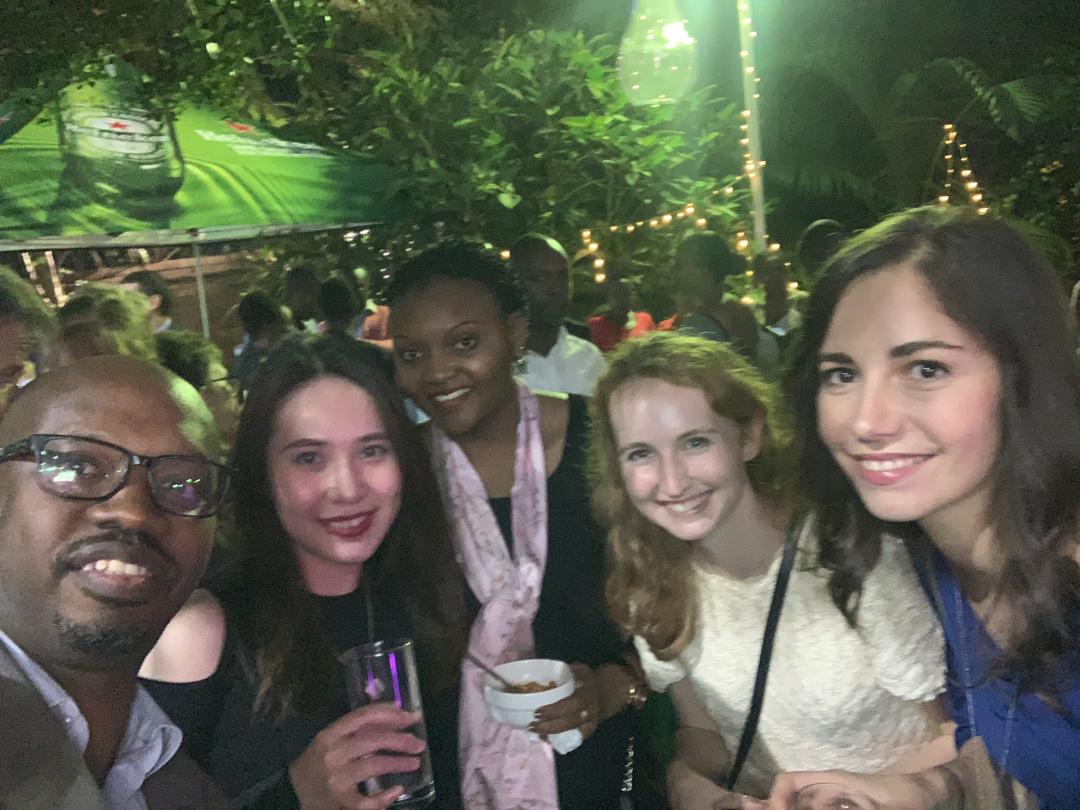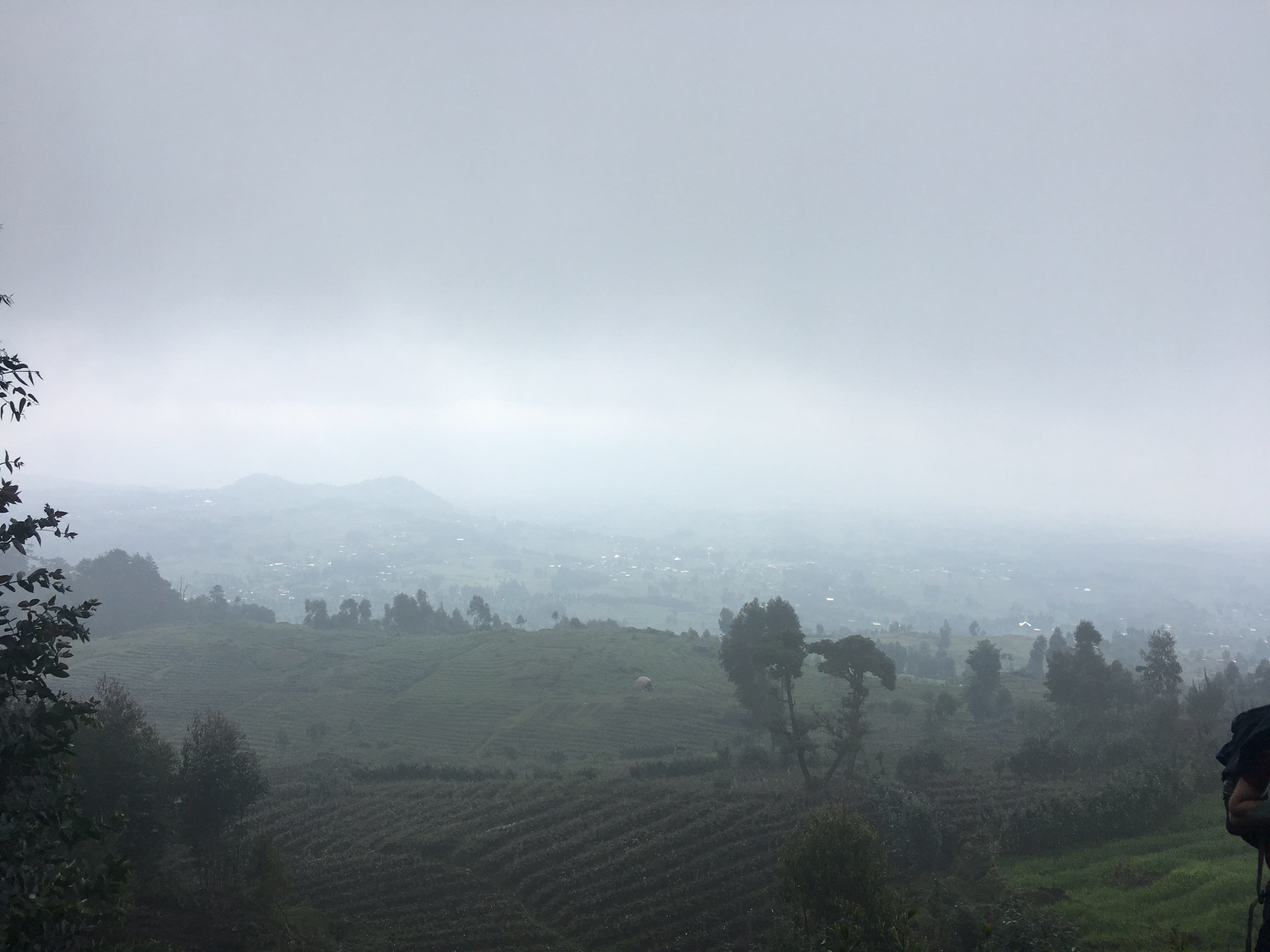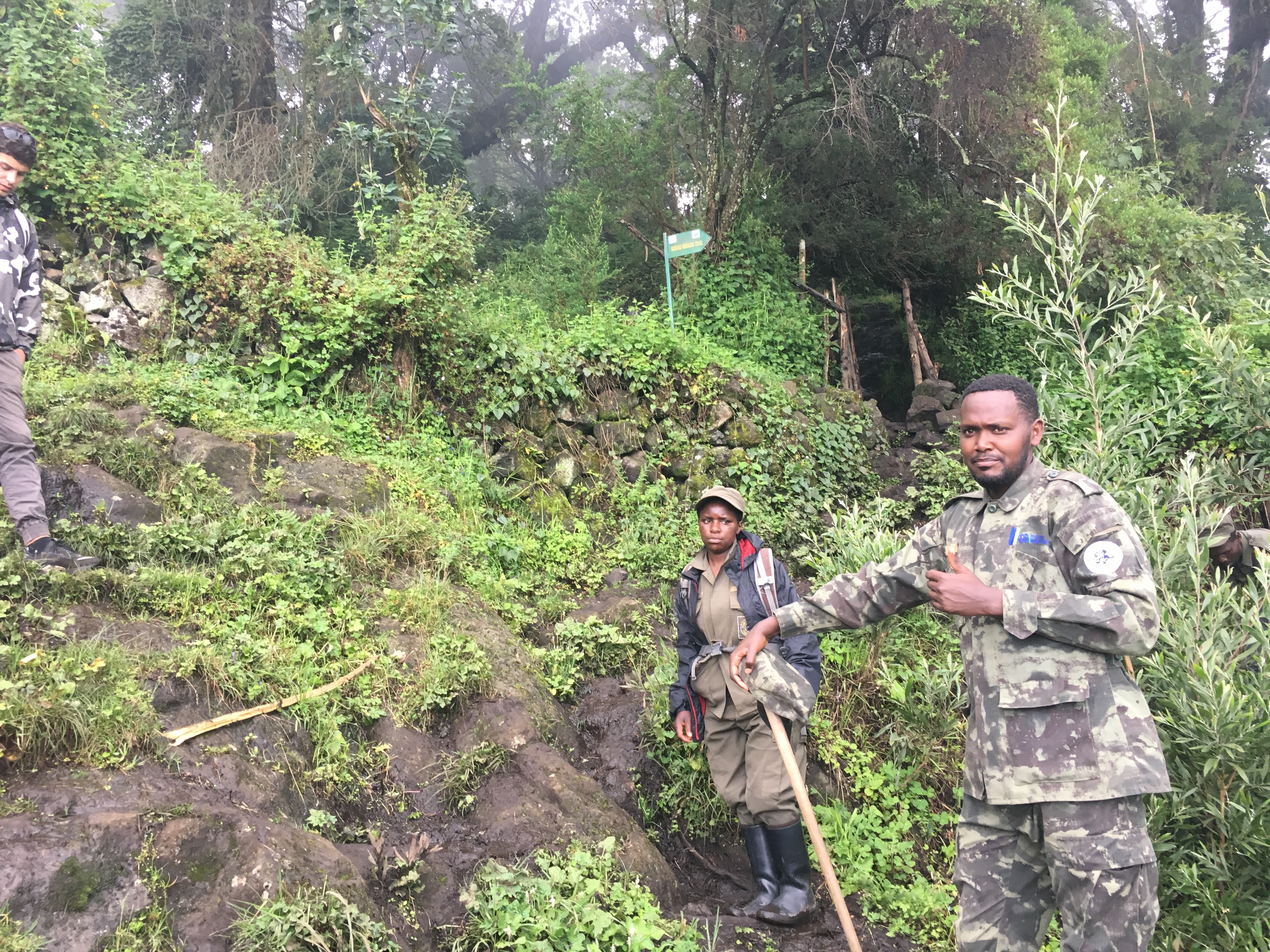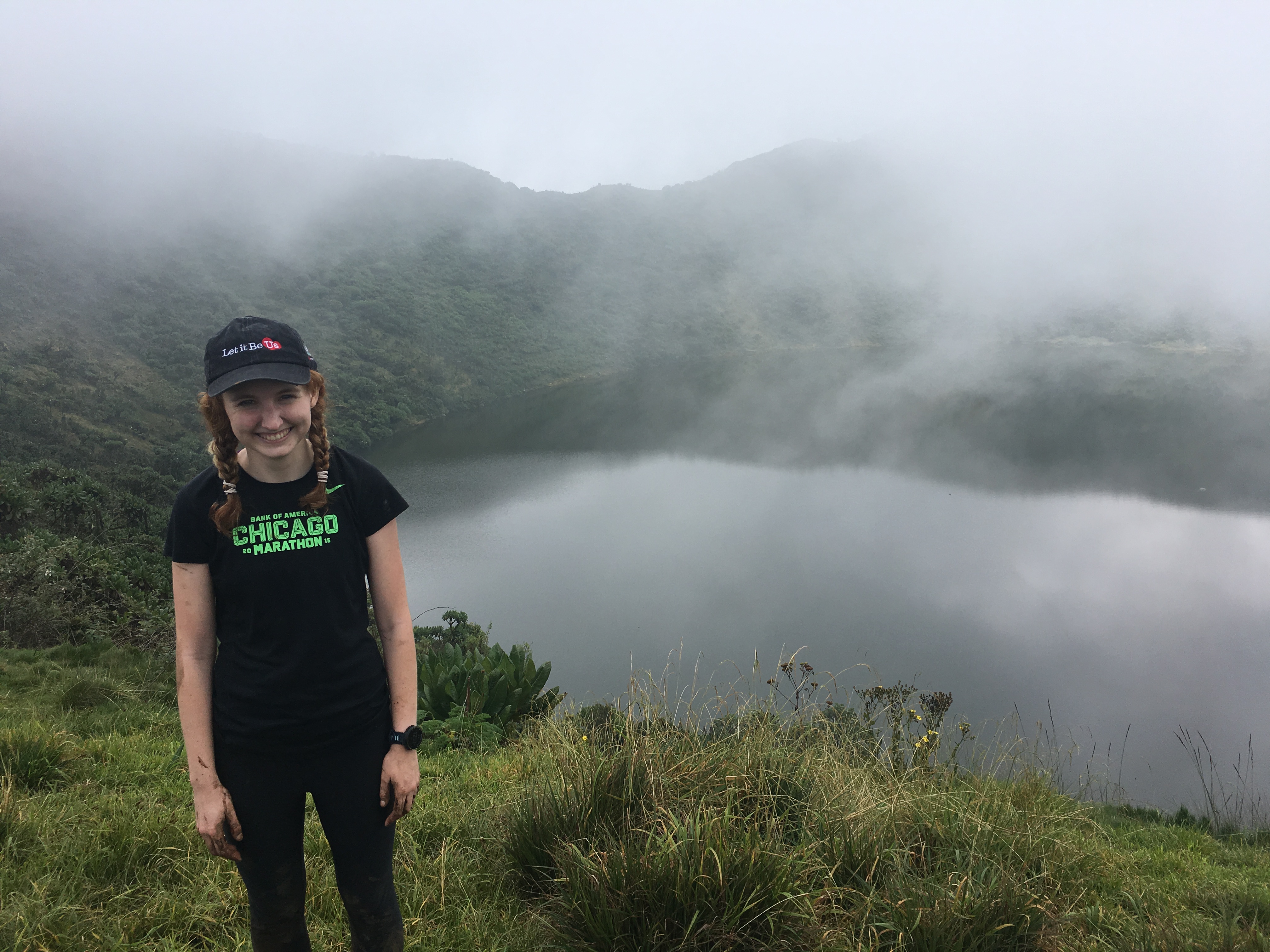The One Where I Climb a Volcano
Running
Now that I’m becoming more accustomed to life in Rwanda, time is flying by! I can’t believe I’m already a quarter of the way through my internship. This week was all about settling in and defining my new normal. As an avid runner, I was ready to start running again after a long break post-finals. Although Kigali is very safe, and you can basically walk around at any time of the day or night, I wanted to find a running group to get my bearings for the first few weeks. Plus, it’s a great way to meet people and make lifelong friends! I didn’t really know how to go about finding expats to run with, so I looked on Strava, a running app that tracks your routes, for people running in Kigali. Luckily, I found an American girl my age doing a Fulbright scholarship here, and I messaged her to join her group. Now, our group is up to a couple of Americans who run every other day in the morning. Running in Kigali is much harder than running on the flat plains of Illinois, however. I will need time to adjust to the high altitude (Kigali is about the same altitude as Denver) and the killer hills. I will be running a 10k this weekend in Kigali, so hopefully I will be well-adjusted by then.
Working
This week was a bit slower work-wise. On Tuesday, we had a day off for Eid al-Fitr, which is a Muslim holiday that marks the end of Ramadan. Catholicism is the dominant religion in Rwanda, and has been since European colonialism in 1884, but Islam is the most popular minority religion. During the genocide, many Muslims helped shelter victims. Since then, the number of Muslims in the country has grown exponentially.
For the rest of the week, I finished up the rights awareness campaign reports from last week. I also got started on a few new projects. The first was writing invitation letters to the guests for RBJ’s next radio awareness campaign. This involved reading the reports put together for the campaign and drafting letters to local and international NGOs and non-profits and government officials. This radio campaign is part of a larger project funded by the European Union in conjunction with another international non-profit, Dignity in Detention, which provides mental health services to detainees. The larger campaign focuses on raising awareness about basic legal rights and working to free wrongfully-convicted detainees. RBJ is also addressing lengthy pre-trial detentions in the country. According to the Rwandan Constitution, it is illegal to detain someone for more than 30 days before trial, but many people are immediately detained for months or even years as soon as they’re suspected of committing a crime. RBJ lawyers are recruited from all over the country to provide pro-bono legal counsel to detainees. They visit local prisons about four times a month to find detainees who need legal representation, and they defend them as quickly as possible to diminish the amount of time they spend in jail or under police custody.
 My other project involved gathering RBJ success stories to put on our site. I worked with the lawyer in charge of the Defender Resource Center (the main hub of RBJ) to find stories of individuals who have been released due to legal representation from RBJ. Many of these stories involve people who were wrongfully detained forlong periods of time as suspects for petty crimes. In one case, a man was arrested after community members accused him of stealing rabbits at a market because he happened to be selling rabbits at the market that day. After spending 10 days in pre-trial detention, his RBJ lawyer got him a hearing, and he was declared innocent by a judge.
My other project involved gathering RBJ success stories to put on our site. I worked with the lawyer in charge of the Defender Resource Center (the main hub of RBJ) to find stories of individuals who have been released due to legal representation from RBJ. Many of these stories involve people who were wrongfully detained forlong periods of time as suspects for petty crimes. In one case, a man was arrested after community members accused him of stealing rabbits at a market because he happened to be selling rabbits at the market that day. After spending 10 days in pre-trial detention, his RBJ lawyer got him a hearing, and he was declared innocent by a judge.
I ended the work week by attending the Queen’s birthday party at the home of the UK ambassador. It had typical British hors d’oeuvres and desserts and every important international figure in Kigali. It was great to socialize and network outside of the office.
Hiking
This weekend was quite the adventure! It was another early morning on Saturday as I headed out east at 4:30 am to hike a volcano. My group consisted of five expats living in Kigali for various amounts of time. We drove through tiny villages between the gentle hills to get to the reception point for our hike. Once we sorted out our permit, we briefly met our guide and about 30 other people (all of whom were tourists or expats in Rwanda)  who we would be hiking with that day. Then, we set out in our vehicles for the 40-minute drive to the base of the volcano. The drive was what the locals call an “African Massage,” meaning the road is so rocky that it feels like a nice massage as you’re thrown around your car. This was quite the scene for the local villagers, who stared at all of the international visitors struggling to traverse their ill-equipped cars over the road.
who we would be hiking with that day. Then, we set out in our vehicles for the 40-minute drive to the base of the volcano. The drive was what the locals call an “African Massage,” meaning the road is so rocky that it feels like a nice massage as you’re thrown around your car. This was quite the scene for the local villagers, who stared at all of the international visitors struggling to traverse their ill-equipped cars over the road.
When we got to the base of the volcano, we met our armed guards and porters, who would guide us up the mountain and help us with our backpacks and footing. They handed us our hiking sticks, and we were off. The first 30 minutes, we trekked up a slow incline to the entrance of the national park. Our guide explained that there is a stone wall separating the private farms and the national park to keep the wild animals, especially the buffalo, in the park. Buffalo love to eat potatoes, and they would ravage the farmers’ potato fields every night before the stone wall was  constructed. The stone wall was built after the farmers began to kill off the buffalo because their local officials weren't taking care of the issue. However, our guide said the stone wall is soon going to be reconstructed to include a moat because the buffalo have started to tear down the wall at night by gathering in a big group and pushing the wall over.
constructed. The stone wall was built after the farmers began to kill off the buffalo because their local officials weren't taking care of the issue. However, our guide said the stone wall is soon going to be reconstructed to include a moat because the buffalo have started to tear down the wall at night by gathering in a big group and pushing the wall over.
Once we got into the park boundaries, the mud started. The path was almost un-trekkable for the four-hour climb up the mountain through the rainforest-like terrain. I (stupidly) only brought running shoes, and they kept getting stuck in the huge mud piles. My white socks were completely black by the time I reached the top of the mountain. After what felt like a lifetime, we finally reached the top of the mountain, just in time for the fog to clear over Crater Lake. I stared down into the water, perched on the boundary between the Democratic Republic of the Congo, as the guards carefully watched me to make sure I didn’t try to cross the border.
After a short rest and a quick sandwich break of ten minutes, it was time to head back down to make sure we were back before sundown. I thought the way up was difficult, but the way down was ten times worse. I  gripped a porter’s hand the entire way like a toddler to help me traverse the seemingly 180-degree slopes in the slippery mud. I soon lost count of the number of times I fell, completely ruining any clean spot on my clothing that happened to escape the mud on the way up.
gripped a porter’s hand the entire way like a toddler to help me traverse the seemingly 180-degree slopes in the slippery mud. I soon lost count of the number of times I fell, completely ruining any clean spot on my clothing that happened to escape the mud on the way up.
After 7 hours of hiking, we were finally at the base. My whole body was throbbing in pain, and I had blisters on my hands from gripping my hiking stick and my porter’s hand. The African Massage helped work out those last kinks as we drove to Musanze, a small city about 45 minutes from the volcano, to spend the night at a guest house. When we showed up at the guest house, we were dripping in mud. Our hosts quickly gathered our filthy clothing and shoes and returned them to us the next morning cleaner than they had ever been. That night, we enjoyed hot showers, Italian food, and Rwandan beer, as we forgot about all the pain we put our bodies through just a few hours before.